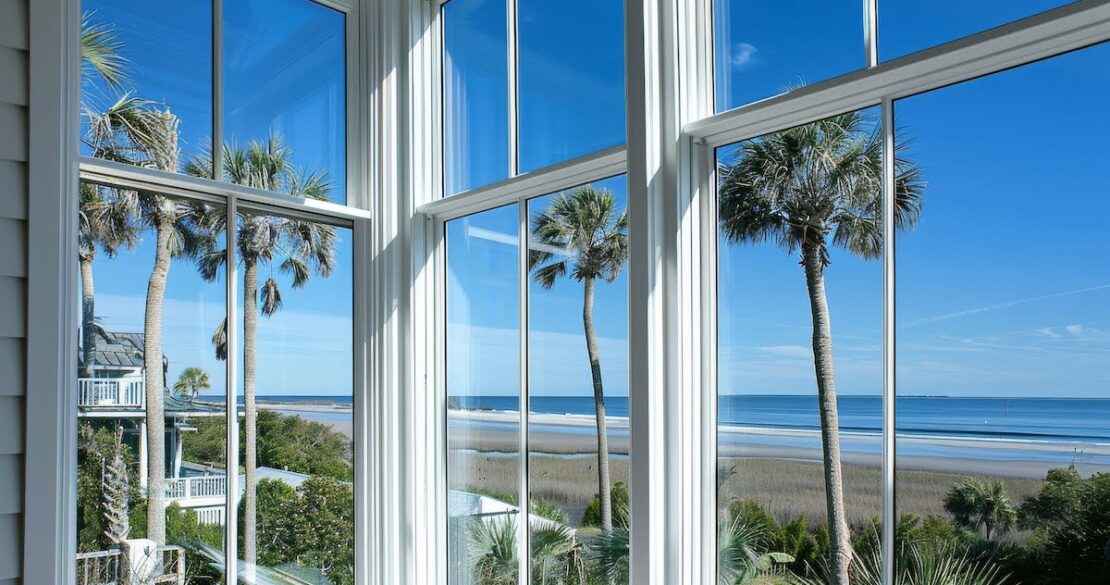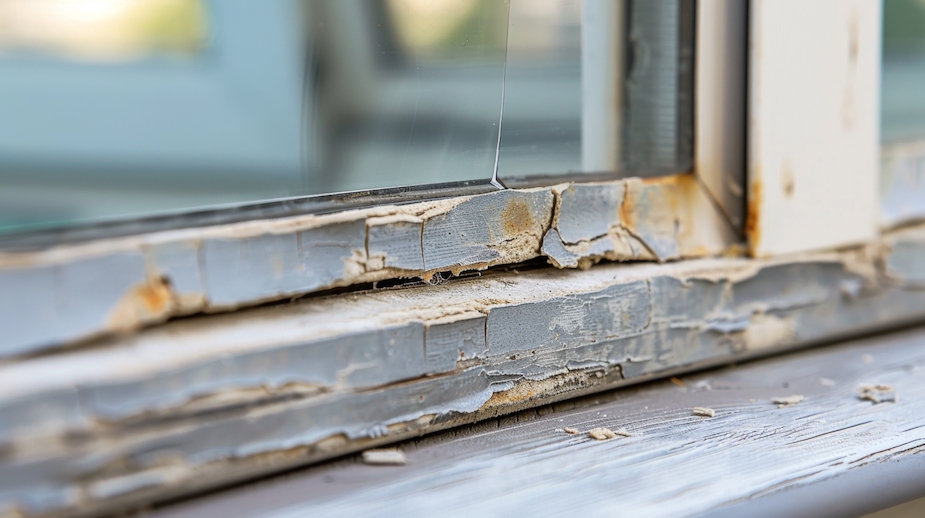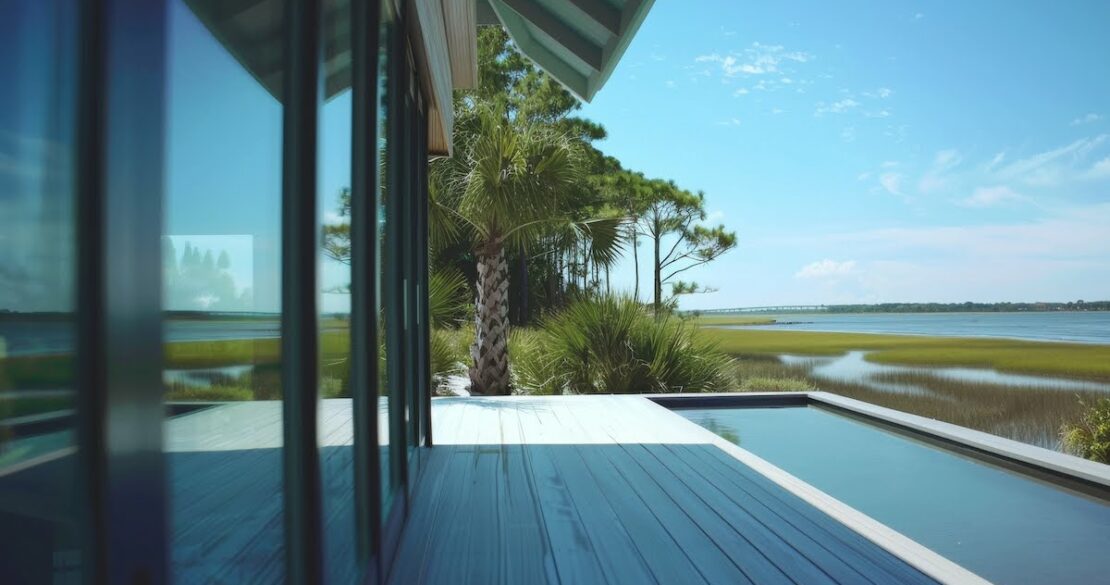Ever stood in front of your windows, squinting at your energy bills and wondering if these panes are robbing you blind?
If you’re nodding along, you’re not alone.
The idea of replacing windows can be downright daunting, especially when you’re haunted by the fear of tossing money out, well, the window.
We get it—no one wants to dive into a pricey home improvement project only to find out it wasn’t necessary.
But here’s the kicker: how often should windows actually be replaced? Is your neighbor’s advice about their “forever windows” just hot air?
Maybe you’re thinking, “I’ll just wait a little longer. They can’t be that bad, right?”
Totally valid thought. It’s easy to procrastinate, especially with the stakes feeling high.
But what if the truth could save you money, boost your home’s comfort, and even up its value?
Intrigued? Good.
We’re here to debunk the myths and dish out some surprising, fact-based insights.
Let’s dive in.
The Lifespan Myth
- MYTH: “Windows should last forever if well-maintained.”
- REALITY: Windows typically last 15-20 years, but several factors can influence this.
Ever heard someone say, “If you take good care of your windows, they’ll last a lifetime”?
Sounds like a dream, right? But let’s get real. Even with the best care, windows aren’t immortal. Think about it like this: your favorite pair of shoes can last years if you polish and repair them, but eventually, they wear out.
The same goes for windows.
Factors Influencing Lifespan:
- Material Quality: High-end windows made of durable materials like fiberglass or clad wood might outlast cheaper vinyl ones. But that doesn’t mean they’ll last forever.
- Climate: Live in a place with extreme weather? Your windows will age faster. Freezing winters, blazing summers, or salty sea air can all speed up the process.
- Usage: Windows that face a lot of wear and tear, like those in high-traffic areas, won’t last as long as ones rarely touched.
Here’s a surprise: top-quality windows, with meticulous care, can sometimes exceed 25 years. But let’s be honest—that’s the exception, not the rule.
Signs It’s Time for Replacement:
- Windows start to fog up.
- Windows stick.
- Windows let drafts in.
When you notice these signs, it’s time to think about a replacement.
The Energy Efficiency Argument
- MYTH: “Replacing windows won’t make a big difference in energy efficiency.”
- REALITY: New windows can significantly reduce energy bills and improve home comfort.
Picture this: it’s winter, and you’re snuggled on the couch. But there’s a chill creeping in from your windows. Your heating system’s working overtime, and so is your wallet. Sounds familiar?
Many think new windows won’t make a dent in energy efficiency.
But that’s a myth worth busting.
Benefits of Modern, Energy-Efficient Windows:
- Design: They’re designed to keep the outside elements out and your conditioned air in.
- Insulation: Double or triple-pane windows, filled with insulating gas and coated with low-emissivity (Low-E) film, can drastically cut heat loss in winter and reduce heat gain in summer.
Imagine a thermos keeping your coffee hot—these windows work similarly for your home.
Energy Savings:
- Replacing old, drafty windows can slash your energy bills by 10-25%.
- That’s not just pocket change; it’s real savings.
- Plus, it makes your home more comfortable, no more drafts giving you chills or hot spots making you sweat.
Environmental Impact:
- By using less energy, you’re reducing your carbon footprint.
- New windows not only save you money but also help save the planet.
That’s a win-win if there ever was one.
The DIY Replacement Myth
- MYTH: “DIY window replacement is just as good as professional installation.”
- REALITY: Professional installation ensures optimal performance and longevity.
Ever watch a DIY show and think, “I could do that!”? Sure, painting a wall or building a bookshelf might be manageable. But window replacement? That’s a whole different ballgame.
Let’s talk about why going pro makes sense.
Reasons to Hire Professionals:
- Precision: Windows need to be installed just right to work properly. A tiny gap can let in drafts, moisture, and pests.
- Sealing: Improper sealing can lead to leaks and damage to your home’s structure.
- Tools and Experience: Professional installers have the tools, experience, and know-how to get the job done right.
Think of them as window surgeons. You wouldn’t perform surgery on yourself, would you?
Surprising Fact:
- Studies show that professionally installed windows last significantly longer.
- They also perform better in terms of energy efficiency because pros make sure everything’s airtight and secure.
So, while DIY might save you some bucks upfront, it could cost you more in the long run. Trusting a pro isn’t just about avoiding headaches; it’s about ensuring your investment pays off.
The Cost Misconception
- MYTH: “Window replacement is too expensive and not worth the cost.”
- REALITY: Window replacement is a worthwhile investment with long-term returns.
Staring at the price tag for new windows can feel like a punch to the gut. It’s easy to think, “Is this really worth it?”
But before you slam your wallet shut, let’s unpack the cost vs. value equation.
Benefits of New Windows:
- Energy Savings: Efficient windows can lower your bills. Over time, those savings add up, offsetting the initial cost.
- Comfort: New windows eliminate drafts, making your home a cozy haven.
- Resale Value: Homes with new windows often sell faster and at higher prices. Buyers love the idea of low maintenance and high efficiency.
Financial Considerations:
- Financing Options: Many window companies offer payment plans, making it more affordable to spread the cost over time.
- Tax Credits: Potential tax credits can also ease the financial hit.
So, while the upfront cost might be daunting, the long-term benefits make it a smart move.
It’s an investment in your home, comfort, and peace of mind.
The Maintenance Myth
- MYTH: “Proper maintenance means you’ll never need to replace your windows.”
- REALITY: Regular maintenance can extend the lifespan of windows but doesn’t eliminate the need for replacement.
Let’s tackle another common belief: if you keep up with maintenance, your windows will last forever. Sounds nice, but it’s just not true. Even the best-kept windows have a shelf life.
Importance of Maintenance:
- Regular Upkeep: Cleaning, caulking, and checking seals can help your windows last longer. It’s like keeping your car in good shape with regular oil changes and tune-ups.
- Inevitable Wear: Over time, materials degrade. Wood can warp, vinyl can crack, and seals can fail. Even the sturdiest windows eventually give out.
Modern Windows:
- Require less maintenance.
- Offer better performance than older models.
- Are designed with advanced materials and technologies that make them more durable and efficient.
So, while maintenance is key, don’t let it lull you into a false sense of security.
New windows, when the time comes, are a wise upgrade.
The One-Size-Fits-All Fallacy
- MYTH: “All windows are created equal, and any type will do.”
- REALITY: Different homes and climates require different window solutions.
Ever think, “A window’s a window, right?” Not quite.
Just like you wouldn’t wear flip-flops in a snowstorm, you shouldn’t assume one type of window fits all homes and climates.
Choosing the Right Windows:
- Climate Considerations: Low-E coated windows for hot climates; double or triple-pane windows with gas fills for cold climates.
- Custom Solutions: Custom windows tailored to your specific needs can outperform generic options in terms of efficiency and durability.
Analogy:
- Choosing the right windows is like picking the perfect pair of shoes. It’s about fit, function, and style.
So, don’t settle for one-size-fits-all. Take the time to find windows that fit your home and climate perfectly. Your comfort, energy bills, and home value will thank you.
Additional Resources
For those looking to dive deeper into the subject of window replacement, here are some valuable resources to check out:
- Energy.gov – Energy-Efficient Windows: Energy-Efficient Windows – Learn about the benefits and features of energy-efficient windows.
- National Fenestration Rating Council: Understanding Window Ratings – A guide to understanding the energy performance ratings of windows.
- This Old House – Window Replacement Guide: Window Replacement Guide – Comprehensive tips and advice on window replacement.
- Energy Star – Window Replacement Savings: Energy Star Savings Calculator – Calculate potential savings from installing Energy Star certified windows.
For personalized advice and professional installation, contact Atlantic Glass.
We offer expert glass replacement and repair services tailored to your needs.
Visit our Residential Glass Replacement Services page or reach out directly for more help on your window replacement project.
Key Points Table:
| MYTH | FACT | KEY POINTS |
|---|---|---|
| Windows should last forever if well-maintained. | Windows typically last 15-20 years. | Material quality, climate, and usage influence lifespan. |
| Replacing windows won’t make a big difference in energy efficiency. | New windows can significantly reduce energy bills and improve home comfort. | Modern windows keep outside elements out and conditioned air in, reducing energy bills by 10-25%. |
| DIY window replacement is just as good as professional installation. | Professional installation ensures optimal performance and longevity. | Professionals ensure airtight and secure installation, prolonging window lifespan. |
| Window replacement is too expensive and not worth the cost. | Window replacement is a worthwhile investment with long-term returns. | Energy savings, comfort, resale value, financing options, and tax credits. |
| Proper maintenance means you’ll never need to replace your windows. | Regular maintenance can extend the lifespan of windows but doesn’t eliminate the need for replacement. | Modern windows require less maintenance and offer better performance. |
| All windows are created equal, and any type will do. | Different homes and climates require different window solutions. | Custom windows tailored to specific needs outperform generic options. |





